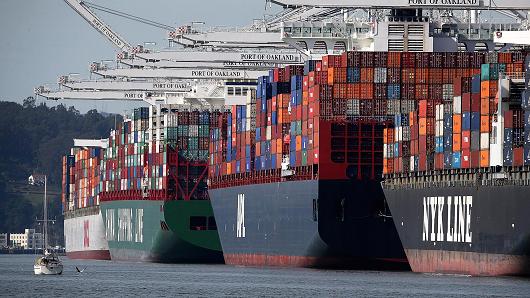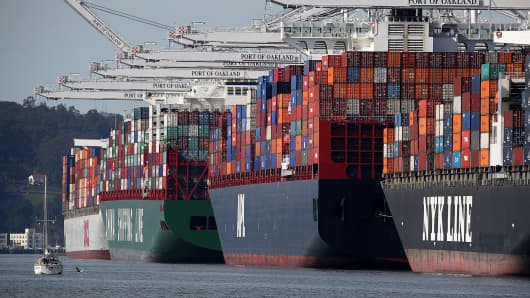A controversial proposal to tax all goods and services coming into the United States has a better chance of becoming law than many on Wall Street suspect.
The so-called “border-adjusted” tax is part of the House tax overhaul plan that also would reduce the corporate rate from 35 percent to 20 percent.
The idea is to tax goods as they come into the country from overseas, but to avoid taxing U.S. exports at all. For instance, a car imported into the U.S. from Mexico would be taxed, but the American-made steel sent to Mexico would not.
Proponents say the proposed “destination tax” would encourage more U.S. production of goods and create U.S. jobs. But opponents say it will send prices higher, unfairly cut profits for some sectors, particularly the retail industry, and could prompt retaliation. The idea is similar but not quite like a VAT, or value added tax, common in other countries.
The stock market has been celebrating promises of lower corporate taxes that could boost business spending, but it has been ignoring proposals that could sting some companies’ bottom lines. Retailers, automakers and refiners are among the industries that could be hit if imports are taxed.
“What they are doing is making that corporate income tax border-adjustable, so the only thing that matters is whether something is produced … If the import comes from outside the U.S., the U.S. company is paying a tax on the item. If the company exports their product, the income from that sale will not taxable. This is why Republicans refer to it as a destination tax.”
“I think the market is focused on the candy — lower tax rates — and not the spinach that’s needed to pay for it,” said Daniel Clifton, head of policy research at advisory firm Strategas. Clifton said that after Donald Trump was elected president, the odds of a border-adjusted corporate tax rose from 10 percent to about 30 percent.
Trump and the Republican Congress are expected to take a swing at overhauling corporate and individual taxes in some form, merging Trump’s plan and the Congressional proposal, with the hope of making changes for the 2017 calendar year.
“Every time I look at the House Republicans saying this is going to be included, you have to take this proposal seriously,” said Clifton. “The U.S. has a corporate income tax, and what they are doing is making that corporate income tax border-adjustable, so the only thing that matters is whether something is produced … If the import comes from outside the U.S., the U.S. company is paying a tax on the item. If the company exports their product, the income from that sale will not taxable. This is why Republicans refer to it as a destination tax.”
The prospect of a 20 percent corporate tax rate — from 35 percent — and a plan for repatriation of corporate cash stashed overseas have helped send stocks higher since the Nov. 8 election. The market has also been focused on a reduction in the capital gains tax rate for some investors, as Congress is expected to eliminate the 3.8 percent tax, related to the Affordable Care Act, on top of the already 20 percent capital gains tax rate.
Julian Emanuel, equity and derivatives strategist at UBS, said he expects the corporate tax rate will end up being between 20 and 25 percent, as legislators weigh tax cuts against revenues. Trump proposes a 15 percent corporate tax rate.
Emanuel said the destination tax can’t be dismissed, even though for now Wall Street is not giving it high odds. “It’s on the table … if we’ve learned anything in 2016, it’s that anything is possible,” he said.
Clifton said the border-adjusted tax is a way to lower the tax rate dramatically, and without it, the corporate tax rate could not be cut as much as proposed.
“Number one, Donald Trump says he’s going to do tariffs, but this is a way of doing tariffs but in a less hurtful way. It begins to create incentives for companies to come back to the U.S. It also gives you a ton of tax revenues that could be used to get the corporate tax rate lower,” Clifton said.
Goldman Sachs economists also put a one-in-three chance on the idea of a destination-based, border-adjusted corporate tax gaining approval. They expect the proposal to continue to remain in the legislation as it goes through the early stages of consideration, and that could put more focus on it.





